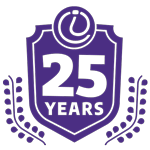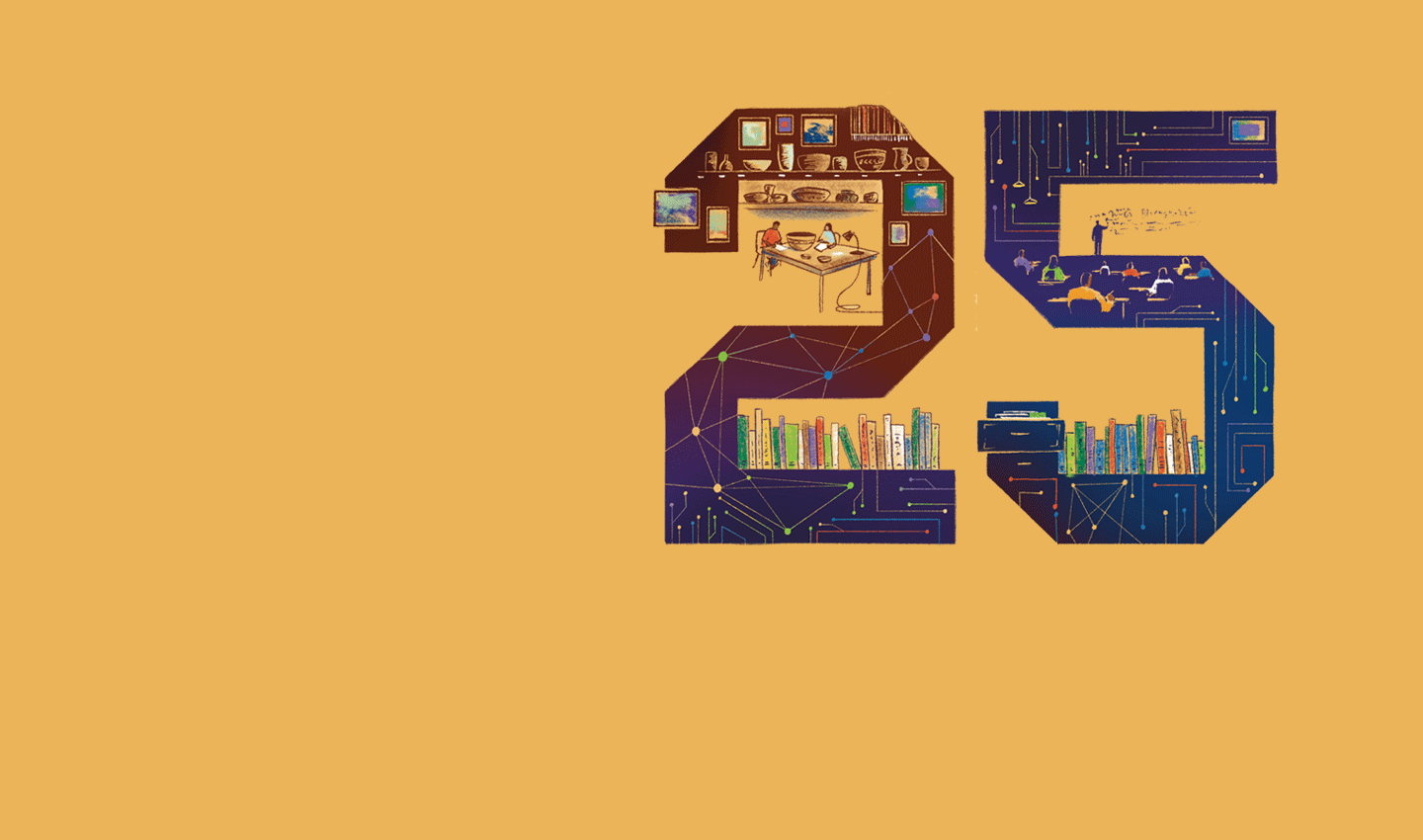Mike Eisenberg’s trademark enthusiasm was on full display. It was Jan. 6, 2001, and the nascent Information School threw a party in the newly opened, state-of-the-art Mary Gates Hall.
In a few short years, the UW’s Graduate School of Library and Information Science had been transformed. It had added an Informatics undergraduate program and a doctoral program, with a master’s in information management soon to follow.

“We’re creating something important that is ‘insanely great’ that will help us try to make sense of this technologically overwhelming society,” Eisenberg proclaimed, borrowing a phrase from Steve Jobs. Eisenberg would become the new school’s first dean later that year.
Now the iSchool is celebrating again. Its 25-year anniversary marks a quarter century of teaching and research that empowers people by connecting them with the right information at the right time. From its modest beginnings, the iSchool has grown to serve more than 2,000 students, with 70 faculty and a growing research portfolio that includes several research centers.
A UW “Futures Committee” put the wheels in motion in 1996, recommending bold action “to build a new and outstanding library and information science program that will rapidly achieve national and international prominence.” At the time, the library school, founded in 1911, had only 150 students, with seven faculty and three staff members, and offered a single master’s degree. The university launched a nationwide search for a director who could transform the school.
Eisenberg, then a professor at Syracuse University, interviewed and pitched an aggressive plan. He would double the size of the library science master’s program, add more degree programs and bring in research funding. He would hire 20 more faculty and enough staff to support the growing research and academic enterprise. He would move fast and take risks, if necessary. And he would do it all while staying true to the values of librarianship.
To Eisenberg’s surprise, UW leadership gave him everything he asked for.
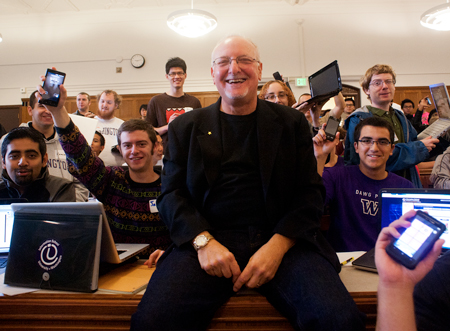
“They bought into the promise and they were part of it,” he said, noting that he got key support from then-Provost Lee Huntsman and Computer Science Chair Ed Lazowska. “It was like everything came together.”
Eisenberg arrived in 1998, and he brought reinforcements with him. He convinced Harry and Lorraine Bruce, his friends and colleagues, to uproot their family from Sydney, Australia, and move to Seattle, sight unseen, to join the faculty. He brought Scott Barker, a former student of his from Syracuse, as his IT director and made a raft of early faculty hires, including Joe Janes, who would become a longtime chair of the Master of Library and Information Science program, and Batya Friedman, who led the development of the Informatics major. Existing faculty, particularly Professor Raya Fidel, threw their support behind Eisenberg.
Tracie D. Hall had a first-hand look at the transformation as it happened. Hall, who is now in her second year on the iSchool faculty as a Distinguished Practitioner in Residence, earned her library science degree at the school in 2000.
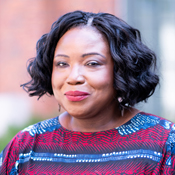
“I immediately began to understand what that meant as a student, because I started to see the shifts in our curriculum and how we were beginning to talk more broadly beyond the technique and the technologies of librarianship, and I began to think more about the theory and the critical histories,” she said. “Being there when that shift was being made contributed to the kind of practitioner, not only that I’ve become, but that I still hope to be.”
* * *
The school was in startup mode, and it needed room to grow. Eisenberg quickly moved its offices from the basement of Suzzallo Library to temporary quarters in the old Electrical Engineering Building, but he knew that wouldn’t contain the school for long. He asked the administration where the next and best available space would be.
“They said Mary Gates Hall, but you can’t have that,” Eisenberg recalled. “And I said, ‘Oh, good. That sounds really good. We’ll take it.’”
People had a hard time saying no to Eisenberg. Eventually he got his way, negotiating to create a home for the school on the third and fourth floors of the new building. He also made a name change to Information School on his own, then “got called in to the principal’s office.”
“We changed the letterhead and all of our stuff to “Information School” and “iSchool.” I got called in to see the vice provost, Steve Olswang, who was a great guy. And Steve goes to me, ‘Mike, did you change the name of the school?’ And I said, ‘Yeah, I kind of did, Steve.’”
Olswang shook his head and laughed. Soon after, the Board of Regents made the Information School the UW’s 16th independent school or college and made Eisenberg dean.
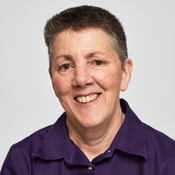
“You really had to feel that energy,” said Mary Clark, who joined as the school’s lead financial administrator in 2001 and stayed until her retirement in 2023. She likened Eisenberg to a football coach revving up his team in the locker room. “He’d say, ‘Let’s go. Come on, everybody. This is what we’re going to do! And it’s going to be fantastic. It’s going to be great. It’s going to be incredible!’”
All of that energy took a toll, however. Eisenberg suffered a heart attack after speaking at a university event on election night, 2004. It led him to reevaluate his hard-driving style and step back from his role as dean, though he would stay on as an influential professor, researcher and teacher.
Harry Bruce was appointed as the next dean in January 2006. Bruce, who had served as the associate dean for research, brought a different style of leadership to the job. High energy, quick action and impatience with barriers drove Eisenberg; Bruce, on the other hand, was extremely adept at managing the politics and pace of change at a large university.
Their contrasting personalities would prove to be a very successful formula, making the iSchool a role model for information schools on university campuses around the world. Bruce attributed the success to the school’s faculty, staff, students, alumni and supporters as well as other members of the school’s leadership team.
“Mike and I might have been the right leaders at the right time for the iSchool, but its phenomenal success was due to the hard work, passion, loyalty, expertise and leadership of our stunning community,” Bruce said.
* * *
Those first few years had been a whirlwind of new ideas, rapid hiring, program building and big promises. Enrollment swelled to 569 students by 2005.
“Our working community hadn’t had time to breathe across our startup phase,” Bruce said. “My immediate concern as the incoming dean was to deliver on the many things that we were saying the iSchool could do, but at the same time, not to burn out our faculty and staff.”
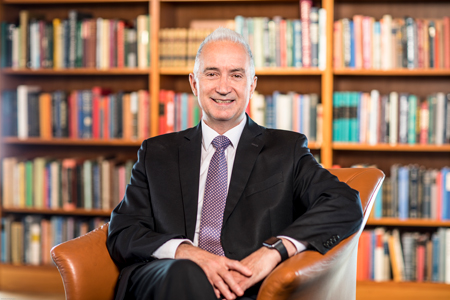
Over the next 11 years, Bruce presided over the iSchool’s steady growth in size and influence. The Informatics major grew from a single cohort of 27 students to 200, with hundreds more applying each year. The research enterprise grew quickly, and the school became a leader in areas such as data science, human-computer interaction, digital youth and Native North American Indigenous Knowledge in addition to its core in library and information science.
In 2011, the iSchool faced one of its biggest crises to date when a state budget deficit resulted in deep cuts at the UW. The president and provost considered folding the iSchool under the College of Arts and Sciences.
Bruce rallied the community he had spent years building. To push back against the plan for consolidation, he pursued a “relentless, but not obnoxious” campaign, gathering support from the iSchool’s champions in Olympia, in tribal communities, in libraries, and in the state’s information and technology industries.
Along with Clark and others, Bruce put together a financial model demonstrating that the school could sustain itself and that cutting it wouldn’t save money. Within a few months, the provost wrote to the school, declaring that it would remain independent.
Bruce emerged from the episode with a renewed sense of purpose. “I think we were ready to get excited again and build,” he said, “so the years that followed were incredibly exciting.” The community united around his vision of an iSchool that would be “unassailable,” and Bruce led the school through a period of rapid growth until stepping aside as dean in fall 2017.
* * *
After a nationwide search for Bruce’s successor, Anind K. Dey took over as dean in 2018. Whereas Eisenberg and Bruce had backgrounds in library science, Dey is a computer scientist who made his mark leading Carnegie Mellon University’s Human-Computer Interaction Institute. The choice reflected the evolution of the school in the years since its founding, Dey said.
“I think it was a recognition that while many information schools still have their core in library science, there has been a big push in information science into applied computer science,” he said.
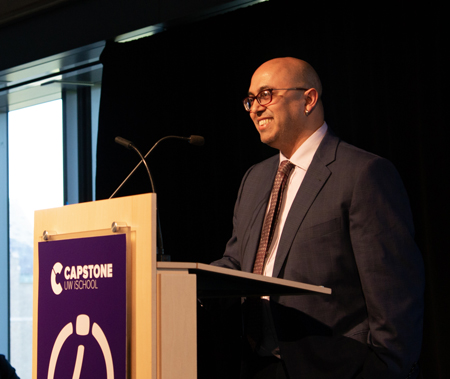
Dey was upfront with the iSchool community that his background was in another field and he had a lot to learn about library and information science. He shares its core values — access to information, equity, intellectual freedom, and serving the public good — and he wanted to be at a university where public service was the primary mission.
Once on the job, Dey saw that capacity constraints were preventing the school from serving that mission. He set out to increase access to Information School programs, starting with the Informatics major. “When I realized just how many students we were turning away at the undergraduate level, expanding access very quickly became a top priority for me,” he said.
Under Dey, the Informatics major has grown to more than 1,000 active students, making it one of the largest majors at the UW. The school has also increased scholarship support for all its programs and expanded access to the Master of Science in Information Management among domestic students by giving them an online option.
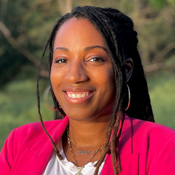
One of those students is Marquisha Hicks, ’22, who was one of the first online MSIM graduates. Hicks works remotely for Providence health-care system in Sacramento, managing software and DevOps engineers. In the MSIM program, she gained not only information management skills, but a skillset that will help her adapt to a constantly changing work environment.
“The world of technology is just growing at an extremely fast pace,” Hicks said. “We as individuals need to be cognizant of the fact that it’s moving at a faster pace than the regulations and the rules.
“You can’t just stop and rest on what you may have learned in school. You have to keep going.”

Hicks, who earned an MBA after her MSIM, exemplifies the kind of modern learner who is in demand, said Brian Lent, a founding partner of YA6 Capital who was previously CEO of Plunk and CTO at HERE Technologies.
“iSchool graduates stand out for their rare mix of curiosity, rigor and adaptability,” Lent said. ”As AI drives the future, it’s exactly the kind of talent every industry now depends on.”
* * *
The school has embraced the emergence of artificial intelligence with new courses and offerings, but also with an eye toward its potential harms. While some of the school’s research and teaching is at the forefront of developing large language models and harnessing the new technology’s potential, others study ways to mitigate issues such as AI-generated biases in hiring processes.
This dichotomy exemplifies the iSchool’s approach, said Eva Maxfield Brown, Informatics ’17 and a current Ph.D. candidate.
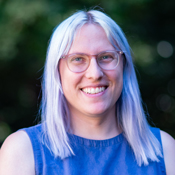
“We can build these things, but it’s especially important to be critical and ask, ‘Should we be doing this?’” Brown said. “One of the reasons why I like the iSchool is it’s not entirely tech positivist. It’s not just, ‘All tech is good all the time.’”
Dey’s term as dean has been marked not only by growth and the emergence of AI, but also the biggest challenges the school has faced since 2011. The COVID-19 pandemic wrought massive disruptions to learning, research and operations that continue to reverberate years later. Now, the school is contending with a stream of federal directives that have challenged a significant portion of the school’s research funding and its commitment to diversity and equity.
“In many ways, I feel like we’re stronger because of these challenges,” Dey said. I don’t think any of us came out of the pandemic unscathed, but as a school, we came out of it unified.”
Now, in the face of headwinds from the federal government, he said, “We’re reaffirming our values around social justice and information access and the importance of having trustworthy information, and we’re extending that to aspects of AI. If anything, what’s happening outside the institution is causing us to say, ‘Who do we want to be? And how do we get there?’”
* * *
One of the iSchool’s strengths is its ability to stay nimble, Dey said. That has served it well in the face of adversity and the rise of AI. It will help the school embrace quantum information science and anything else that’s on the horizon.
Likewise, the iSchool’s programs stay nimble. Initiatives such as the Distinguished Practitioner in Residence program, which brought Hall back to the school to teach MLIS students, help ensure the degree programs are keeping pace with employers’ needs. Along with the curriculum, mentorship programs iSTAMP and iMentorship help equip graduates to navigate uncertainty, a crucial skill in a fast-shifting job market.
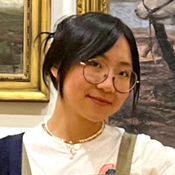
“I feel like the path is becoming more and more uncharted,” said Andrea Chen, Informatics ’19, who works as a product manager at Everybody Votes, a nonprofit voter registration organization based in Washington, D.C. “I feel like before, you could go to college, get a job and work there for 20-30 years. But these days, it’s like, ‘Oh, that job that you had doesn’t exist. The job that you want also doesn’t exist yet.’ So many things are constantly in flux.”
Chen carries with her the iSchool ethos of using the power of information to help people. It’s a mission that traces back not just 25 years, but to 1911 and the school’s beginnings in librarianship. It echoes through every iSchool program: Informatics, MLIS, MSIM, Ph.D. and the Museology program that recently joined the school.
The Information School is a place where technologists can be librarians and librarians can be technologists, where scholars in fields as disparate as machine learning, Indigenous knowledge, digital literacy, information systems, management and museum studies all are welcome.
That will be key in the next quarter century and beyond, Dey said. To thrive, the school must be interdisciplinary. It must stay true to its values and serve the public good.
“It’s about focusing on who has access to information,” he said. “How do you ease that access? How do you mediate that access? How do you help people answer the questions that they’re trying to answer? That goal and mission will not change in the next 25 years.”
